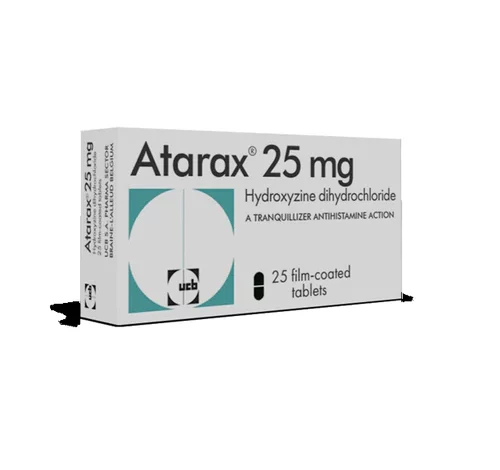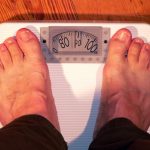Can Hydroxyzine Cause Weight Loss?

Hydroxyzine is an antihistamine medication that is commonly used to treat anxiety, itching, and other conditions. While the primary focus of hydroxyzine is to alleviate symptoms associated with these conditions, some people may experience weight loss as a side effect of taking the medication.
Hydroxyzine, or Atarax, is one of the oldest antihistamine drugs created and is capable of creating euphoric sensations or a ‘hydroxyzine high’ without becoming addictive. This medication was first synthesized in 1956, but it is still widely used today.
In this article, we will be looking at the link between hydroxyzine and weight loss.
Mechanism of Action
Hydroxyzine works by blocking the action of histamine, a chemical produced by the body in response to an allergic reaction. By blocking histamine, hydroxyzine can reduce itching and other symptoms associated with allergies. Hydroxyzine also has a sedative effect, which makes it useful for treating anxiety and other conditions that can cause restlessness or difficulty sleeping.
Potential Effects on Weight
While weight loss is not a commonly reported side effect of hydroxyzine, some people may experience changes in appetite or gastrointestinal symptoms that could potentially lead to weight loss. For example, some people taking hydroxyzine may experience nausea, vomiting, or diarrhea, which can cause a decrease in appetite and lead to weight loss over time. In addition, some people may experience a decrease in their sense of taste or smell while taking hydroxyzine, which could also lead to a decrease in appetite.
However, it’s worth noting that these side effects are not common and may not occur in everyone taking hydroxyzine. In fact, some people may experience the opposite effect, with an increase in appetite and potential weight gain as a result.
Studies on Hydroxyzine and Weight
There is limited research on the effects of hydroxyzine on weight. One study published in the Journal of Clinical Psychopharmacology in 2002 looked at the effects of hydroxyzine on weight in patients with anxiety disorders. The study found that there was no significant difference in weight gain or loss between patients taking hydroxyzine and those taking a placebo.
Another study published in the Journal of Psychopharmacology in 2004 found that hydroxyzine did not have a significant effect on weight in patients with post-traumatic stress disorder. The study did find that patients taking hydroxyzine had a slight decrease in appetite, but this did not lead to significant weight loss.
Side Effects of Hydroxyzine
While weight loss is not a common side effect of hydroxyzine, there are other potential side effects that should be considered. Some of the most common side effects of hydroxyzine include drowsiness, dry mouth, headache, and blurred vision. Less common but more serious side effects can include difficulty breathing, seizures, and irregular heartbeat.
It’s important to talk to your doctor if you experience any side effects while taking hydroxyzine.
Preventing weight loss as a side effect of hydroxyzine
When it comes to weight loss as a side effect of hydroxyzine, there are a few preventative measures that can be taken.
1. Talk to Your Doctor: If you are concerned about the potential for weight loss while taking hydroxyzine, it’s important to talk to your doctor. They can help you determine whether the medication is right for you and whether any potential side effects, including weight loss, are likely to occur.
2. Follow Dosage Instructions: Following the dosage instructions provided by your doctor or pharmacist is important for minimizing the risk of side effects. Taking more or less than the recommended dosage can increase the likelihood of experiencing side effects, including weight loss.
3. Monitor Your Appetite and Eating Habits: Paying attention to your appetite and eating habits while taking hydroxyzine can help you catch any potential changes early on. If you notice a decrease in appetite or changes in taste or smell, talk to your doctor about how to manage these symptoms without impacting your overall health and nutrition.
4. Stay Hydrated: Nausea and vomiting are potential side effects of hydroxyzine, which can lead to dehydration if not managed properly. Staying hydrated by drinking plenty of water and fluids can help prevent dehydration and minimize the likelihood of other side effects, including weight loss.
5. Maintain a Healthy Lifestyle: While hydroxyzine may cause weight loss in some individuals, maintaining a healthy lifestyle can help minimize the risk. Eating a balanced diet, engaging in regular exercise, and getting enough sleep can help keep your body healthy and minimize the likelihood of experiencing unwanted side effects.
Prevention is an important aspect of managing the potential for weight loss while taking hydroxyzine. By talking to your doctor, following dosage instructions, monitoring your appetite and eating habits, staying hydrated, and maintaining a healthy lifestyle, you can help minimize the likelihood of experiencing unwanted side effects and keep your body healthy while taking this medication.





